Salesforce is one of the most popular customer relationship management (CRM) platforms available today. It’s popular because it boasts a wide range of useful features. In fact, you’d be hard-pressed to identify any gaps in functionality in Salesforce’s products, and if you could find a gap, one of the integrations in its AppExchange marketplace would likely bridge it.
While the broad functionality offered by Salesforce means the software will probably fit your use case, choosing the Salesforce package that’s right for you requires some careful consideration — after all, there are so many options to choose from.
Just so you know…
Need an enterprise-level solution? Jotform Enterprise integrates seamlessly with Salesforce to automate your data collection process and boost your organization’s efficiency.
Salesforce offers at least 50 different product bundles, categorized under solutions like small business, sales, service, marketing, commerce, analytics, and nine others.
The most popular solutions, however, are the sales and service cloud editions that give you access to Salesforce CRM. For these editions, Salesforce uses four pricing tiers, beginning with the Starter Suite plan, which starts at $25 per user, per month.
While the Essentials plan is a great place to start for a small business with basic needs and no more than 10 employees, the Professional and Enterprise plans are geared toward businesses that are looking to dive deeper into Salesforce and take advantage of its advanced features.
If you’re trying to make a choice between the Salesforce Professional and Enterprise plans, read on to learn more about the similarities and differences between the two.
Pro Tip
Boost your team’s efficiency with Jotform Salesforce Agent, an AI chatbot that connects directly to Salesforce to capture leads, update records, and deliver instant answers, helping you get more value from every interaction.
Salesforce Professional vs Enterprise: What you get with both plans
Both the Professional and Enterprise plans provide access to Salesforce’s complete CRM solution. This means you have access to the following features:
- Account, contact, lead, opportunity, and case management
- Email integration with Gmail or Outlook
- Salesforce mobile app
- Lead registration and rules-based lead scoring
- Forecasting mobile app
- Contracts, sales orders, quotes, products, and price books
- Unlimited custom applications
- Lightning Sync, which allows you to sync contacts and calendar events between Salesforce and any device connected to Microsoft Exchange
- Collaborative forecasting, which means you can see a complete view of your entire sales pipeline and your business
- Developer sandbox, which allows you to develop applications and test them without affecting your live Salesforce environment
Add new leads to Salesforce from form submissions
DetailsAutomatically create lead records in Salesforce based on form submissions. Use Jotform’s native integration to collect contact info, names, email addresses, and more, without paying any fees.
Create new contacts in Salesforce from form submissions
DetailsInstantly add new contacts to Salesforce based on form submissions. Contact details are added automatically so you won’t need to import them manually. Available in all Jotform plans, including the free, Starter Plan.
Create a new record of a custom Salesforce object from form submissions
DetailsAutomatically create a new record of a specified custom objects in Salesforce based on form submissions. Available in all Jotform plans, including the free, Starter Plan.
Enterprise-only features
While you get a generous amount of features on the Professional plan, some functionality is exclusive to the Enterprise plan.
“Key differences between the Professional and Enterprise editions of Sales Cloud generally center around five areas,” explains Heather Lam, founder and CEO of Revenue Ops LLC, a Salesforce partner organization.
These areas are
- Workflow and approval automation
- Reporting functionality
- Testing capabilities
- Roles, profiles, permissions, and record types
- Integrations and web services API
Workflow and approval automation
“As part of the Enterprise edition, you can automate workflows and approvals to simplify what would otherwise be repetitive business processes,” says Lam. “You can also create unlimited flows and process builders, which are necessary to maintain your data and ensure records don’t fall through the cracks.
“However,” Lam cautions, “you’re limited to only five processes and five flows per organization in the Professional edition and have no access to create workflows or approval automation.”
Reporting functionality
The Enterprise plan includes advanced reporting features, such as cross filters, joined reports, bucketing, and history tracking, which are “critical to analyzing your business data properly,” according to Lam. However, these features aren’t available in the Professional edition.
Testing capabilities
“When creating automated processes, it’s critical to test what has been built in your current environment before deploying it to production,” Lam explains.
“However, there are no partial or full sandboxes included or available for purchase in the Professional edition. In contrast, in the Enterprise edition, one partial sandbox is included, and a full sandbox is available to purchase.”
Roles, profiles, permissions, and record types
The Professional plan offers the following administrative features:
- Two profiles per organization to control permissions and which fields users can see on every record
- Two roles and permissions per organization to define data access for different users
- Three record types per object to customize Salesforce to fit your use case
In the Enterprise plan, you have access to an unlimited number of profiles, roles, permissions, and record types.
Integrations and web services API
Salesforce allows you to connect your system to other systems via API. While this functionality is included in the Enterprise plan, it will cost an additional $35 per user, per month to add this functionality to the Professional plan.
Jotform integrates with Salesforce natively on both the Professional and Enterprise plans. You can sync leads captured using Jotform’s lead generation forms directly to Salesforce, allowing you to capture leads faster and speed up your sales process.
This integration streamlines your data-collection process by automatically prefilling forms with real-time Salesforce data, ensuring accuracy and saving time on manual data entry.
You can simplify your workflows by automating the generation of prefill links using Salesforce merge fields. This will personalize your forms and distribute them efficiently.
The integration also provides detailed logs for visibility and control, helping to maintain seamless data flow and minimize disruptions.
Finally, you can automatically send submitted files, PDFs of form submissions, and signed documents directly from Jotform to Salesforce records, keeping all relevant documentation in one place.
The right plan for your business depends on your needs. Salesforce Professional is great for a mid-sized business with a small sales team and a fairly simple sales process. If your sales process is more complex and you have a large team, then the Enterprise plan is the one for you.
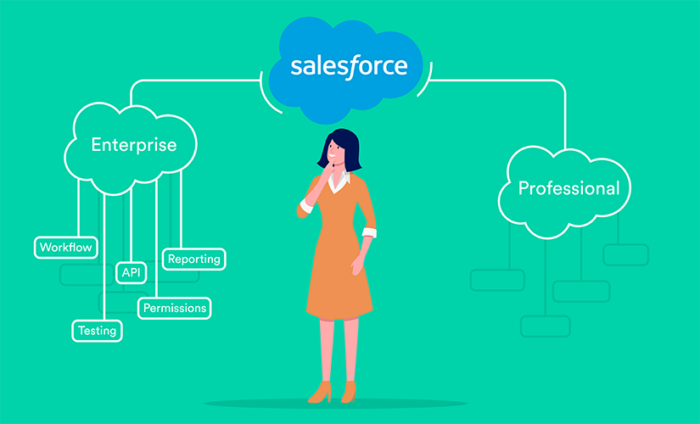

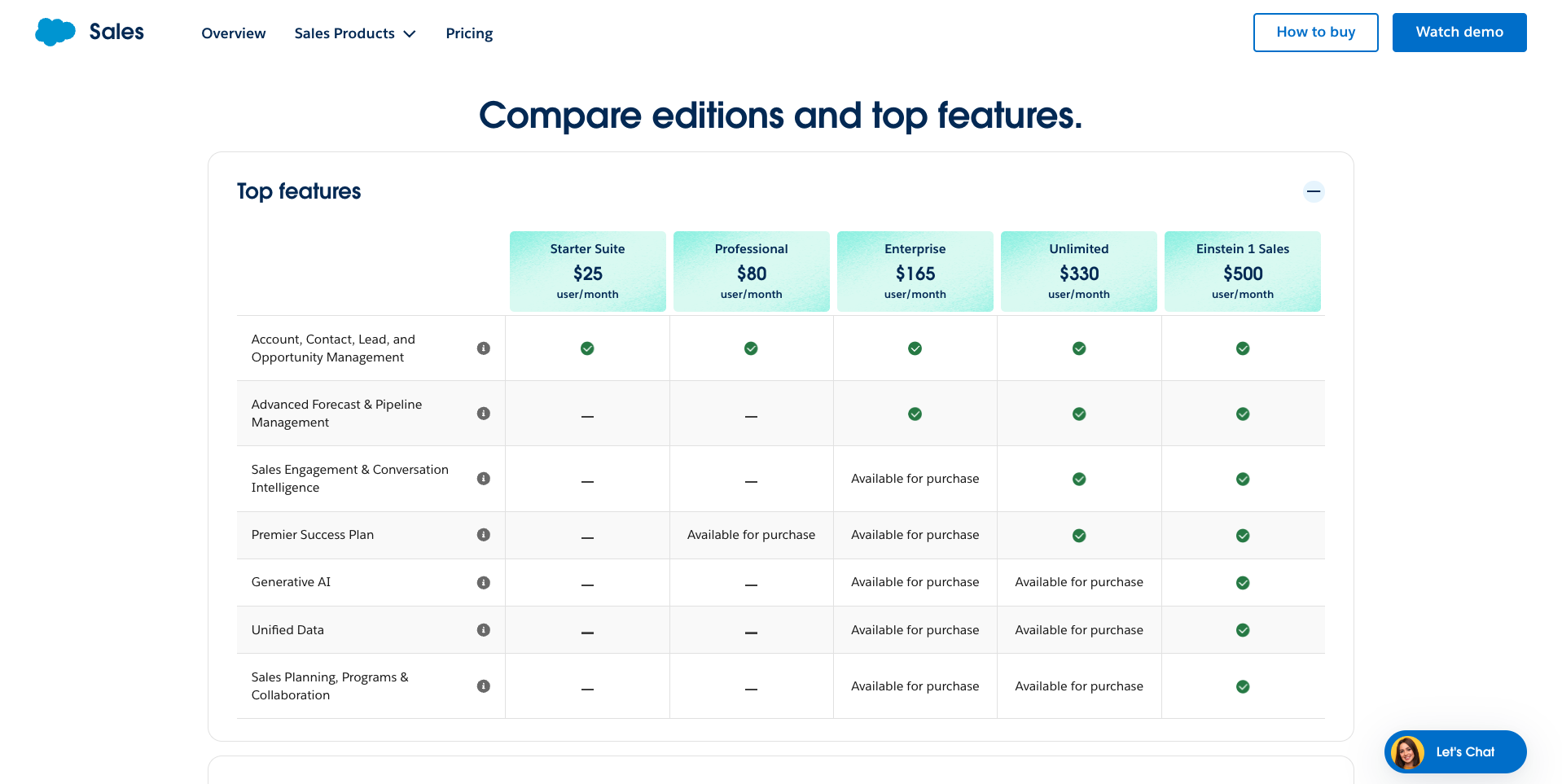














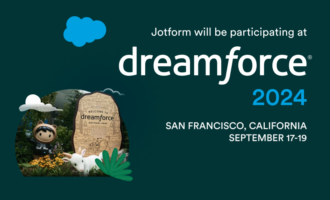

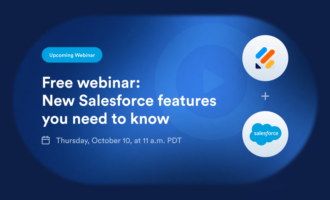








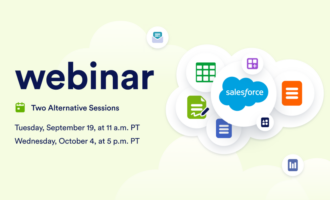





















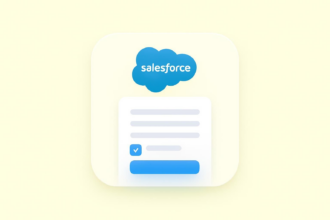



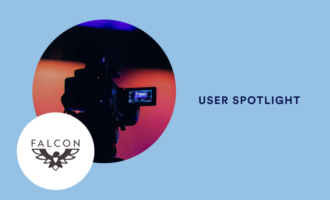









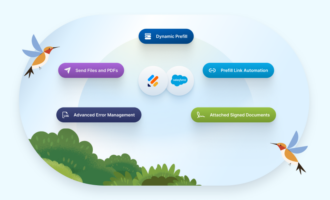





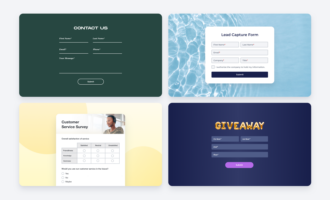




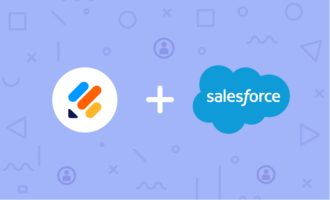






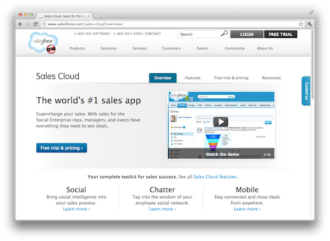













Send Comment:
5 Comments:
More than a year ago
Great post helped me to know about Salesforce Service Cloud , Thanks for sharing a useful post.
More than a year ago
Nice Article. Very informative.
salesforce admin training
More than a year ago
Nice article, thanks for sharing informative content. I like the content of the post.
More than a year ago
Nice article, thanks for sharing informative content. I like the content of the post.
Salesforce Training
More than a year ago
Nice blog post, thanks for sharing informative content.